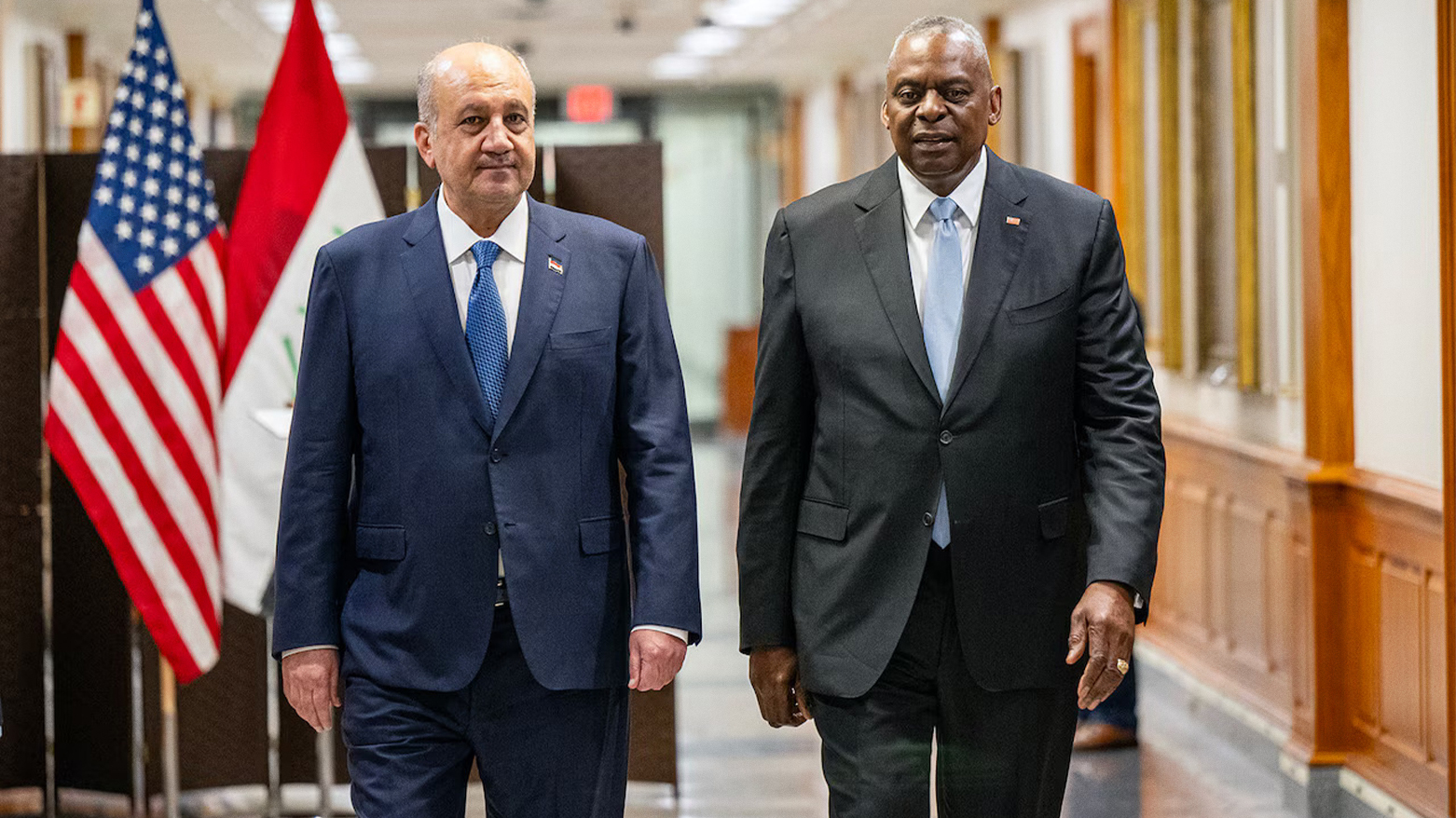US, Iraq Hail Continued Security Cooperation, as Second Dialogue Session Ends
The Security Dialogue laid out broad principles for future military cooperation between the U.S. and Iraq.

WASHINGTON DC, United States (Kurdistan 24) – The second U.S.-Iraq Joint Security Cooperation Dialogue was held in Washington DC on July 22 and 23.
On Wednesday, following the conclusion of the Dialogue meetings, the U.S. Department of Defense and the Iraqi Ministry of Defense issued a joint statement ”reaffirming their commitment to security cooperation” and their “shared interest in regional stability.”
The statement explained that the two sides “discussed a range of bilateral security issues under the 2008 U.S.-Iraq Strategic Framework Agreement and in recognition of our comprehensive partnership.”
“The United States and Iraqi delegations reaffirmed their commitment to developing Iraq’s security and defense capabilities,” it continued, “and their determination to deepen security cooperation across a full range of issues to advance both countries’ shared interest in Iraq’s security and sovereignty, and in the stability of the region.”
It explained that the Dialogue built on discussions held during Iraqi Prime Minister Mohammed Shia al-Sudani’s visit to Washington in April, as well as the first session of the Dialogue, which was held last summer.
Read More: U.S. Seeks to Broaden Ties with Iraq, as PM Sudani Makes First Visit to Washington
Last summer’s Dialogue established the Higher Military Committee (HMC.) The HMC is charged with analyzing three factors: 1) the ISIS threat; 2) operational requirements to deal with it; and 3) the capabilities of the Iraqi Security Forces.
The answers to those issues will, in turn, “determine the future of the international military Coalition in Iraq,” as decided by the HMC, the joint statement explained.
Yet the joint statement contained one puzzling point. It seemed to say that while ISIS remains a threat in Syria and elsewhere in the world, it has been defeated in Iraq.
But ISIS has not really been defeated in Iraq. Its attacks continue, as Maj. Gen. Abdulkhaliq Talaat, the Kurdistan Region’s representative to the Joint Operations Command in Baghdad, told Kurdistan 24 last week.
“While ISIS may not be as strong as it used to be, the presence of sleeper cells and security gaps in certain areas makes their threats more prominent," Talaat explained.
Read More: ISIS remains a persistent threat to Iraq's security, warns Kurdistan Region Major General
Future US-Iraqi Military Cooperation
The U.S.-Iraq joint statement, coming out of the Security Dialogue, laid out broad principles for future military cooperation between the U.S. and Iraq, even as it did not go into details.
“The United States and Iraq intend to continue to consult regarding strengthening bilateral cooperation between the Global Coalition and Iraq,” it said.
“The HMC noted the historic achievements of the Coalition in Iraq and paid tribute to the millions of victims of ISIS,” it continued, which “include hundreds of thousands of casualties suffered in the campaign to defeat ISIS in Iraq, such as those members of the Iraqi Security Forces, including the Peshmerga, and partner forces around the world, including the United States.”
“The two sides confirmed the importance of Iraq continuing to provide support for the Global Coalition to Defeat ISIS in Syria and around the world.”
New Phase of Security Cooperation
In the just-completed Dialogue session, the two sides “reached an understanding on the concept for a new phase of the bilateral security relationship, which includes cooperation through liaison officers, training, and traditional security cooperation programs,” the statement read.
That new phase will, apparently, include additional forms of U.S. military assistance that will “build the operational capacity of the Iraqi Security Forces.”
It will involve professional military education, as well as technical training programs. In addition, the two sides explored “opportunities to expand Iraqi participation in regional military exercises,” led by CENTCOM, while they will work on developing an understanding to “provide an enhanced framework for their bilateral security relationship” in order “to ensure the continued, enduring defeat” of ISIS.
In Dec. 2021, the U.S. combat mission in Iraq ended, and it shifted to an advisory role.
Thus, the statement said, “The delegations reaffirmed that the [U.S.] advisory mission is present in Iraq at the invitation of the Iraqi government to support the Iraqi Security Forces, including the Kurdish Security Forces.”